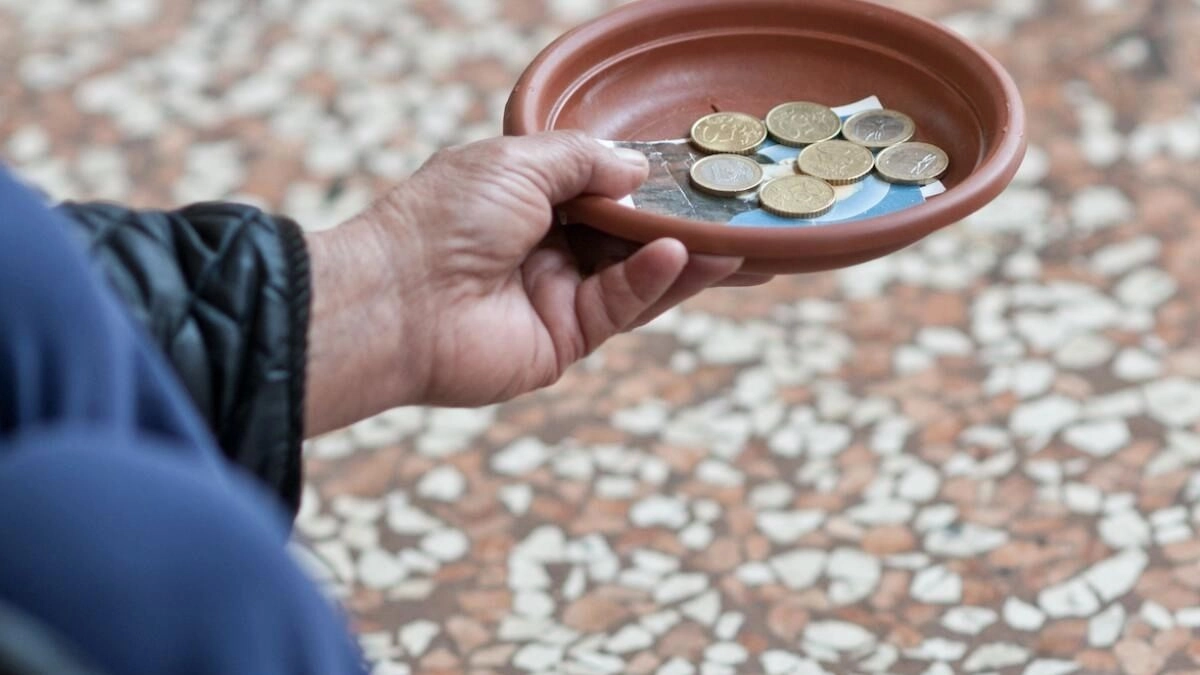News
25 Beggars Arrested In Dubai During The First 5 Days Of Ramadan

The General Department of Criminal Investigations (GDCI) has recently initiated an anti-begging campaign in partnership with Dubai Police stations. As a component of this campaign, the department detained 25 beggars from March 23rd to March 27th, coinciding with the initial five days of Ramadan.
A campaign named ‘Begging is a Wrong Concept of Compassion,’ the campaign’s objective is to increase public knowledge about the detrimental impacts of begging on society and deter individuals from participating in it.
The campaign also strives to endorse values of self-sufficiency and self-reliance, urging people to pursue aid through valid and lawful means.
Major General Al Jallaf confirmed the “strict and decisive” actions taken against beggars
Major General Jamal Salem Al Jallaf, the Director of the General Department of Criminal Investigation in the United Arab Emirates, has announced a considerable decrease in the beggar population within the country.
This reduction is attributed to the stringent measures taken against those who engage in begging. The General has further reported that the campaign has effectively curbed the number of beggars on an annual basis.

UAE authorities arrested 25 beggars during the first five days of the holy month of Ramadan, including 12 men and 13 women. This has shown the authorities’ commitment to tackling the problem of begging in the UAE, particularly during the sacred month of Ramadan.
Major General Al Jallaf affirmed the “strict and decisive” measures taken against the beggars. It’s not exactly clear what these measures are, but they could involve imposing fines, imprisonment, or deportation.
Being strict against begging is considered a part of the UAE authorities’ reputation, as it contradicts the country’s laws and values.
According to the country’s penal code, begging is illegal in the UAE and is a punishable offense. As per Article 356 of the penal code, “if anyone is caught begging publicly or around mosques in the UAE, they could be imprisoned for up to three months or fined no more than AED 5,000.”
Foreign beggars have also been known to be deported from the country by UAE’s government. This is consistent with the UAE’s stringent immigration policies, which prioritize those who help positively the economy and society of the country.
The UAE’s anti-begging measures are not new, and the authorities have been actively enforcing them for several years.
In 2019, the “Together Against Begging” campaign was initiated by the Dubai Police Department to create awareness regarding the adverse consequences of begging and promote the reporting of any such incidents.
As per Maj Gen Al Jallaf, begging poses a risk to the security, and safety of society, property, and the nation’s reputation. This means that begging is more than a minor issue; it is a major issue that affects many aspects of the community.
The major general went on to say that begging is associated with serious consequences such as thefts and robberies. This statement implies that begging is a problem that affects the safety and well-being of society as a whole.
Being in such activities beggars can become harmful and might indulge in criminal activity in order to survive and earn more money.
Furthermore, Maj Gen Al Jallaf stated that begging leads to the exploitation of vulnerable people such as children, the sick, and the disabled. This occurs when beggars take advantage of vulnerable people in order to gain sympathy and more money.
Not only is exploiting individuals in this way unethical, but it can also be detrimental to those who are being exploited.
Maj Gen Al Jallaf is concerned that begging profits are illegal. This statement implies that begging is not an ethical way to earn money and that beggars should seek alternative means of support.
In his statement, Maj Gen Al Jallaf stressed the availability of official channels, charities, and associations for individuals in need of financial assistance or meals during Ramadan.
Related Topics
🔹Jack Whitehall To Perform In Dubai In April
🔹Air India Express Begins Service From Goa To Dubai
This emphasizes the importance of seeking assistance through legal and legitimate channels rather than begging, which is not only illegal but can also have negative consequences for both the beggars and society.
He cautioned the public that begging is a punishable and illegal activity under Federal Law No. This serves as a strong warning to anyone considering begging and emphasizes the importance of seeking assistance through official and legal channels.
The GDCI has been conducting surveillance and monitoring operations to detect and arrest illegal beggars. The arrested people have been referred to the appropriate authorities for legal action. The GDCI has also urged the public to report any begging incidents to the police so that appropriate action can be taken.
Begging is a crime in UAE, and if people are caught doing so face legal consequences such as fines, imprisonment, and deportation for non-residents. The government’s drive against begging plays a vital role in ensuring public safety and security, as well as preserving societal values.